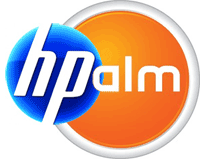HP to Drive Innovation, Scale and Growth of webOS
Stephen DeWitt to lead HP’s webOS global business unit; Jon Rubinstein named senior vice president of product innovation for PSG
PALO ALTO, Calif., July 11, 2011
Building on the successful launch of HP webOS 3.0, HP today announced it is accelerating the global expansion of webOS.
To support this next phase of growth, HP has appointed Stephen DeWitt as senior vice president and general manager of its webOS global business unit. Jon Rubinstein, the visionary behind webOS, will assume a product innovation role within the Personal Systems Group (PSG) at HP.
This announcement underscores HP’s strategy to provide a seamless, secure, context-aware experience across HP’s product portfolio, and to deliver innovation at unmatched scale.
“With the successful debut of our first wave of webOS-based products, we are drawing on our deep executive bench to position the right leaders in the right roles to accelerate the long-term growth of webOS,” said Todd Bradley, executive vice president, Personal Systems Group, and member of the Executive Board, HP. “Stephen DeWitt has a proven ability to build and scale organizations into global, multibillion dollar operations, and I am confident that he will take webOS to the next level. At the same time, we continue to leverage the core strengths of Silicon Valley icon Jon Rubinstein to apply his considerable talents across the PSG portfolio.”
DeWitt, who has been leading the PSG Americas region at HP, will be responsible for all aspects of the webOS business, including engineering, research and development, sales, marketing and go-to-market support. In his new role, DeWitt will spearhead the creation of a fully integrated, global developer and independent software vendor program to deliver new consumer and business applications. DeWitt’s team also will create a dedicated mobility practice with HP’s partner community, with the goal of delivering consumer and enterprise solutions globally.
DeWitt has dramatically improved PSG’s profitability and share position in the America’s region since his arrival to HP in 2008. He is succeeded by Stephen DiFranco, head of the Solutions Partners Organization for the Americas region at HP.
“Innovation is at the core of webOS, and I look forward to working with our talented team of engineers as we strive to develop the industry’s most compelling set of products, solutions and services in markets around the world,” said DeWitt. “As part of our investment in the future of webOS, we are working in lock step with the developer community, our channel partners and the start-up community to create an application ecosystem that delivers on HP’s mobile connectivity strategy.”
Jon Rubinstein has been named senior vice president for Product Innovation in the Personal Systems Group at HP. He will continue to report to Todd Bradley in this role, helping to propel innovation across product lines. HP will leverage Rubinstein’s passion for building exceptional consumer products and his long history of driving game changing innovation, such as webOS.
“With the launch of webOS 3.0, our team has delivered a world-class platform for HP to leverage going forward, and it is now time to take things to the next level,” said Rubinstein. “With webOS under Stephen DeWitt’s proven leadership, I’m looking forward to my new role and driving further innovation for webOS and other PSG products.”
About HP
HP creates new possibilities for technology to have a meaningful impact on people, businesses, governments and society. The world’s largest technology company, HP brings together a portfolio that spans printing, personal computing, software, services and IT infrastructure at the convergence of the cloud and connectivity, creating seamless, secure, context-aware experiences for a connected world. More information about HP (NYSE: HPQ) is available at http://www.hp.com.

 Weird: By flopping so badly, HP’s TouchPad tablet has become a monstrous hit. After HP CEO Léo Apotheker decided to
Weird: By flopping so badly, HP’s TouchPad tablet has become a monstrous hit. After HP CEO Léo Apotheker decided to 
 With all the hubbub surrounding HP’s shocking announcement of
With all the hubbub surrounding HP’s shocking announcement of 
 Companies in Silicon Valley are fond of saying that they like to “fail fast.” They mean that it’s virtuous to try lots of new things, but to give up quickly when something’s not working. But sometimes they fail fast in a manner that’s nothing to brag about. They invest millions (or hundreds of millions) of dollars in a new product and hype it to the Heavens–and then kill it after only a few months, if they ever release it at all.
Companies in Silicon Valley are fond of saying that they like to “fail fast.” They mean that it’s virtuous to try lots of new things, but to give up quickly when something’s not working. But sometimes they fail fast in a manner that’s nothing to brag about. They invest millions (or hundreds of millions) of dollars in a new product and hype it to the Heavens–and then kill it after only a few months, if they ever release it at all.